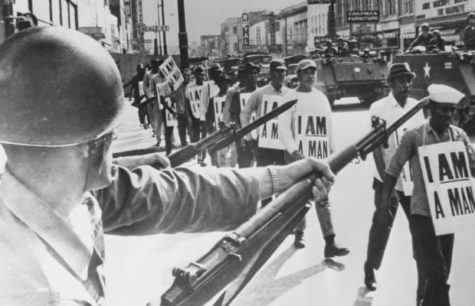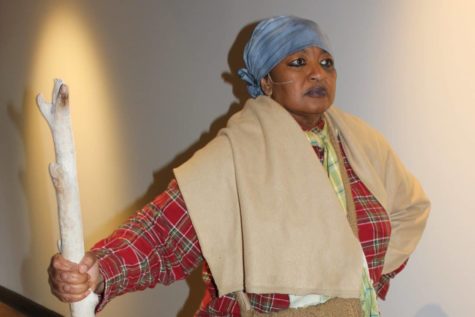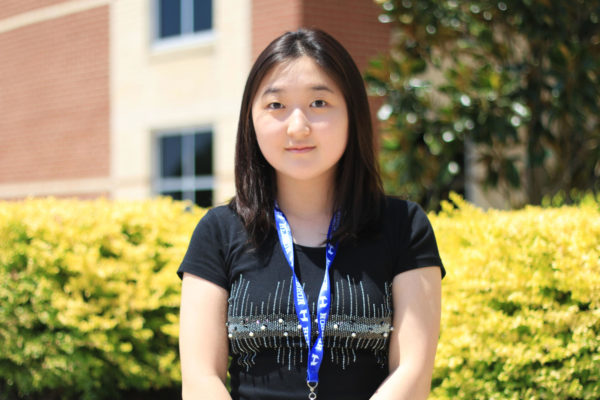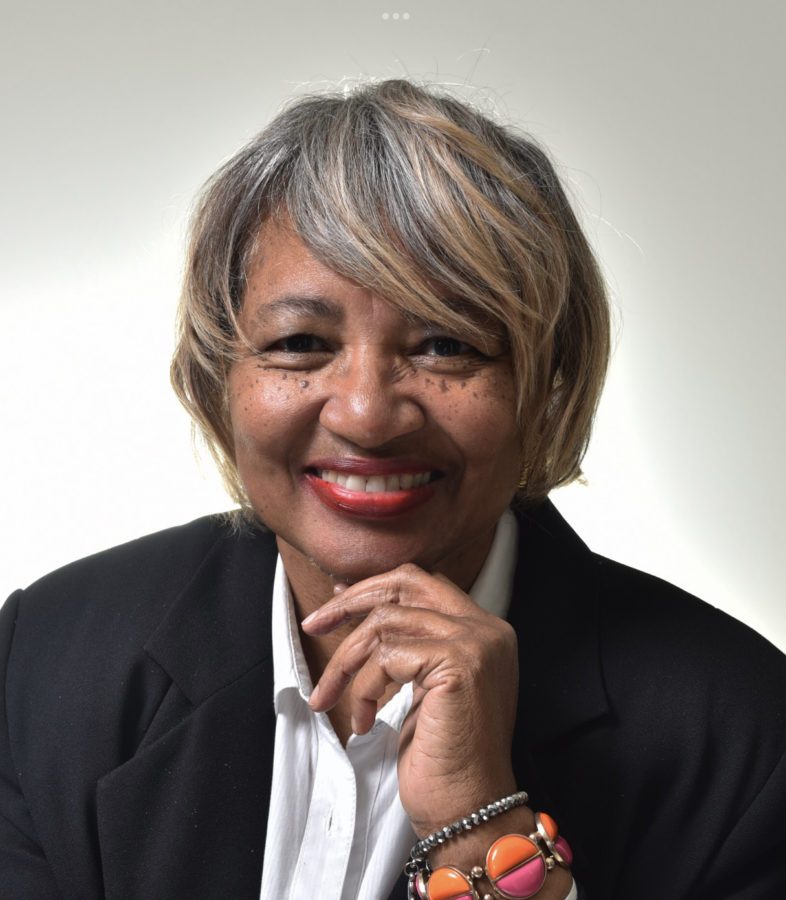Fighting for a voice
Substitute teacher shares experience as civil rights protester
It is 1968. There is a worker’s strike in Memphis, Tennessee, where approximately 1,300 poor, uneducated and primarily Black sanitation workers are taking a stand for better wages. Martin Luther King Jr. steps in as the leader of the union and sends out word for young people to join the peaceful civil rights protest. One of those people was Hester Moore, a female high school student at the time.
“I was approached by two teachers,” Moore said. “They asked me if I would be interested in participating in the march and said that it was Dr. King that sent word. I didn’t know what to say other than, ‘yes’.’”
Up until March 28 of 1968, the date of the protest, intense preparation went into instilling a message within participants through strategic nonviolent workshops: Keep your eyes on the prize. The prize, according to Moore, was peace and real social change, which was promoted through smaller events leading up to the march, such as holding signs with the slogan near local businesses and shops.
“Those signs motivated us to keep focus and keep our eyes on the prize,” Moore said. “At the end of the day, everyone can get mad and scream and fight, but nothing can get done until you sit down with love and compassion.”
However on the day of the march, chaos erupted. Protestors led by Dr. King began marching peacefully when screaming, crying and shoving began. The cause was people who had the intent to disrupt the protest by rioting. This commotion pushed Moore and others toward the church where policemen would follow them and, instead of turning their guns the other direction, would turn their guns, mace and tear gas toward the protestors.

“There was glass everywhere; people started screaming ‘blood,’ so we ran back to church,” Moore said. “The police arrived, asked us to put our hands up and we were all scared, but I was hysterical because I thought I was going to die.”
Only a few weeks after Dr. King was removed from the march and returned for another one, he was assassinated in the Lorraine hotel. For Moore, who was already scared from this march, the news was devastating.
“I felt like a coward,” Moore said. “When Dr. King was assassinated, it devastated me. Why would anyone want to kill a man of his stature who just wanted peace? [After that,] I turned my back if I heard anything about protesting, because I didn’t want to pay the cost of that anymore.”
This mindset continued until 1998, when Moore’s professor heard her story and compelled her to share it in commemoration of the 30 year anniversary of Dr. King’s death. She told her professor that she did not want to write or talk about it, but he still encouraged her. Eventually, she gained the courage to write and sent it to print in the local newspapers. Her article received a wave of acceptance, with others also standing up to write to her about their similar experiences.
“When I talked about the Memphis march in the past, I could still smell the tear bombs and mace that they sprayed on the crowds and saw the kids knocked out,” Moore said. “[I relived] the fear of knowing that I might’ve been killed. But my professor challenged me, and I was amazed at the flood of people who also wanted to tell their stories.”
From then on, Moore continued finding her voice and using it for good. She graduated from the University of Memphis with a degree in theater and studied at the American Academy of Dramatic Arts, creating a one-woman show about Harriet Tubman’s life. She traveled, toured and shared Tubman’s stories wherever she could.

“I have a strong sense that Harriet Tubman lives inside me as I carry on her story,” Moore said. “I have a true love for what she stood for and what she did, not only for the Black community, but for everyone.”
Moore didn’t stop there, though. She acted in commercials, became a plus size model for Macy’s and even used her voice to commentate in fashion shows, which is where she would meet basketball Hall of Famer Shaquille O’ Neil. He asked her, “How do you do what you do?” and Moore would respond that she just “took notes.” She said she has never forgotten where she came from and continues to learn from the people around her today.
“Fear has gripped me a lot in years past,” Moore said. “I bring this up a lot, but there’s this time I met Michael Jackson. When Michael and I were talking, he never once looked me in the eyes. But, later on at the concert he invited me to, he was like a bright day in a dark night. That’s when I knew the stage helps you do what you wouldn’t be able to do otherwise.”
In 2017, Moore published a book on her experiences, called 16N68: My Story, and was asked to recite Dr. King’s speech when the Memphis orchestra had a commemoration for him. Moore now serves Hebron High School by occasionally stepping in to substitute.
“Students often ask me why I’m not rich in money,” Moore said. “[What they don’t know] is that I’m rich in other things. It’s not all about me. It’s about the people I serve, the students I teach. I feel like all of us have stories and have something to say.”
At 71 years old, Moore is still growing and learning, dedicating her life to helping people around her. She expresses her pride for the younger generation and modern social progression because it contrasts so much from the life she grew up with. Now, instead of segregated schools, children of different races are able to coexist and be fearless.
“When I walk in Hebron, I see people of different races and demographics who speak out, not just with words but with being themselves,” Moore said. “My father always says, ‘What makes the world go round is the people’. Progress is made because of people having a different concept of things and telling others that they cannot change who they are [for anyone].”

Senior Juliana Mun is the opinion editor and this is her second year on staff. In her free time, she enjoys writing long stories, traveling and going out...





Hester Moore • Nov 17, 2022 at 6:43 PM
Julianna, you did an excellent job or retelling my story. You never gave up in your pursuit to get my story. As I’ve said many times before when asked “what do you think D4. King would think of our youths today??, My answer each and every time “PROUD!” Look at Julianna, she is a perfect example
Much love my little sister soldier